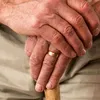How citizens of India are coming to the rescue amidst a brutal second wave of COVID-19
People from all walks of life are leveraging every resource and extending help and then there are some minting money during the crisis. The second wave of COVID-19 holds a mirror against India’s humanity.
Countries around the world have expressed solidarity with India as it battles the second wave of COVID-19. The US, France, Australia, Pakistan, Japan, Singapore, Saudi Arabia, China, and Australia, amongst other countries have ensured help during this unprecedented time for the country. Dubai’s Burj Khalifa, the world’s tallest skyscraper, lit up in tricolor, and displayed the message, “Stay Strong India.”
And India could use it all - the moral support as well as assistance sent in the form of medical equipment and resources.

Dubai’s Burj Khalifa, the world’s tallest skyscraper, lit up in tricolor, and displayed the message, “Stay Strong India.”
(Image tweeted by @Hahosani)
The country recently witnessed a record single day spike in COVID-19 of over 3.52 lakh cases. At the time of reporting, the Ministry of Health and Family Welfare website shows 2,882,204 active cases in India, and experts predict this second wave to peak in mid-May.
Amidst the devastating pandemic, in almost every corner of the country, people are stepping up to help, from cooking for COVID-19 patients in quarantine to tending to the medical needs of more serious patients.
One meal at a time
A week ago, author and chef Saransh Goila’s Instagram was brimming with requests for food for COVID-19 patients in Mumbai, Pune, and Bengaluru.
“When I added a few Instagram stories asking for such service, I started getting queries by the dozen, and saw a big gap where patients were looking for ‘COVID meals,’ which are essentially simple home made food provided by home chefs in the neighborhood,” he shares.
With help from his family members and the manager at his Mumbai-based restaurant, Goila Butter Chicken, they reached out to 250 odd volunteers and service providers to verify their help and created a Google sheet.
In less than a week, the list kept growing as it did rounds on various social media sites, and now runs several pages with over 1,000 meal providers across 40 cities and 26 states. A Delhi-based tech company helped build a website in less than two days. And the list even includes names from places further beyond the metros - 36-year-old Kunzes Angmo is the latest and only entrant from Leh, Ladakh.
“Whatever I am making for the family, I am willing to cook more lunch and dinner, and deliver to those in need in and around Leh for free. I would like to do what I can in my personal capacity because I have heard of COVID-positive people who are living alone,” she says.
In Bengaluru, two designers, Miti Desai and Piyus Jain, have formed the group ‘Recipe of Hope’, where several volunteers are cooking simple vegetarian food and delivering to COVID-affected families across Bengaluru.
Mother-daughter duo Aprajita and Kritika Ramya have also opened up their kitchen in Kadamkuan, Patna to help those in home quarantine. Aprajita Ramya, who heads the Physics department at Patna Women’s College, makes sure to cook before starting her lectures at 11 am daily, starts packing food at 12.30 pm, and leaves it at the gate for volunteers to pick up.
In keeping with the need, foodtech startup Zomato has also rolled out home-style mini-menus feature on its app.
Being an influencer during pandemic
At this moment in time, India is surviving on such acts of kindness, amplified on social media platforms like Facebook, Instagram, Twitter and messaging app WhatsApp, where requests for hospital beds, medicines, injections, plasma, and oxygen availability never seem to end.
“Social Media has become a temporary healthcare support. It's the humanity and the compassion on social media and the internet that is really shining through in these times,” says Masoom Minawala, entrepreneur and fashion and lifestyle influencer with a reach of a million followers on Instagram.
Despite the newfound height of compassion on virtual platforms, Masoom is well-aware of the responsibility that comes with her presence in such times of crisis, and says there is more communication that takes place behind every story posted.
“There's so much information that's available and so many resources too but everything is very time sensitive. Honestly, we are only posting information that's verified,” she says.
“Who would have thought that social media, where we just crack jokes and entertain, would turn out to be this helpful one day. But it is happening and unfortunately, we do miss some people and are not able to help them on time because of the huge demand and lack of resources, and a system not being in place,” adds Aanchal Agrawal, digital strategist and content creator.
When the number of direct messages (DMs) started getting overwhelming to verify them herself, Aanchal formed a team of about 20 volunteers collaborating on WhatsApp to verify every post.

“Sometimes, we even double verify information because once you put a lead out there, the demand is so much that it gets exhausted within minutes. We do not want to send the same lead to other patients, and give them false hope and waste their energy in this grave crisis,” Aanchal explains.
Chef Sanjyot Keer, Founder of Your Food Lab says, “There are so many people who have found beds, oxygen cylinders, medicines, plasma donors through our stories. In many cases, the requirements have been met but we also get messages saying the patient passed away before the requirement was met. It is heartbreaking.”
A little humanity
For Neetu Gupta, a mother of two who runs the pre-school chain CDC Kids in Bengaluru, life has never been the same since the novel coronavirus first broke out in March 2020.
Her classes were moved online, and she began spending more time cooking for her relatives suffering from COVID-19.
“When the second wave hit, another acquaintance suffered, and I thought it is high time that I actually plunge into this, and have been supporting in every capacity day and night for the past two weeks.”
Neetu reaches out to hospitals and other sources to confirm resources available, and passes on the information to those in need. Today, every other call and message she receives is a matter of life and death, and she is able to direct about 1000 patients to the right connection daily. “When I speak with one person, I miss ten other calls. It is overwhelming.”
Nearly 50 friends and residents in her neighbourhood have joined her to take charge and streamline specific needs like plasma, oxygen, injections, and others.
At the end of the day, the messages she receives are poles apart, literally as different as life and death. There are endless messages thanking her for sharing the right resources and saving lives, and others thanking but informing her that their loved one is no more.
“It is painstaking, and I have no words but just keep thinking if I had been able to attend to their call, this wouldn't have been the scene. Sometimes, I really feel bad and take the blame on myself,” says Neetu, who has not been able to check up on her own parents over a call.
According to Neetu, unfortunate as it sounds, people are out there tapping every opportunity to mint money in this time of crisis, operating a black market to sell hospital beds, medicines and injections.
“I couldn't reach out to government helplines because the numbers given were either engaged or not working but I wish BBMP comes to our rescue to remove mediators quoting Rs 50,000 per bed when the actual price is about Rs 15,000. Reaching out to hospitals in this time is also a marathon,” she shares a desperate request.
As Charles Dickens wrote, "It was the best of times, it was the worst of times, it was the age of wisdom, it was the age of foolishness, it was the epoch of belief, it was the epoch of incredulity, it was the season of Light, it was the season of Darkness, it was the spring of hope, it was the winter of despair.” The 20th century author could well have been writing about India today, as it wages a brutal second wave of COVID-19.
But as they say, this too shall pass, and India will emerge stronger on the other end. Hope keeps us going.
Edited by Anju Narayanan








